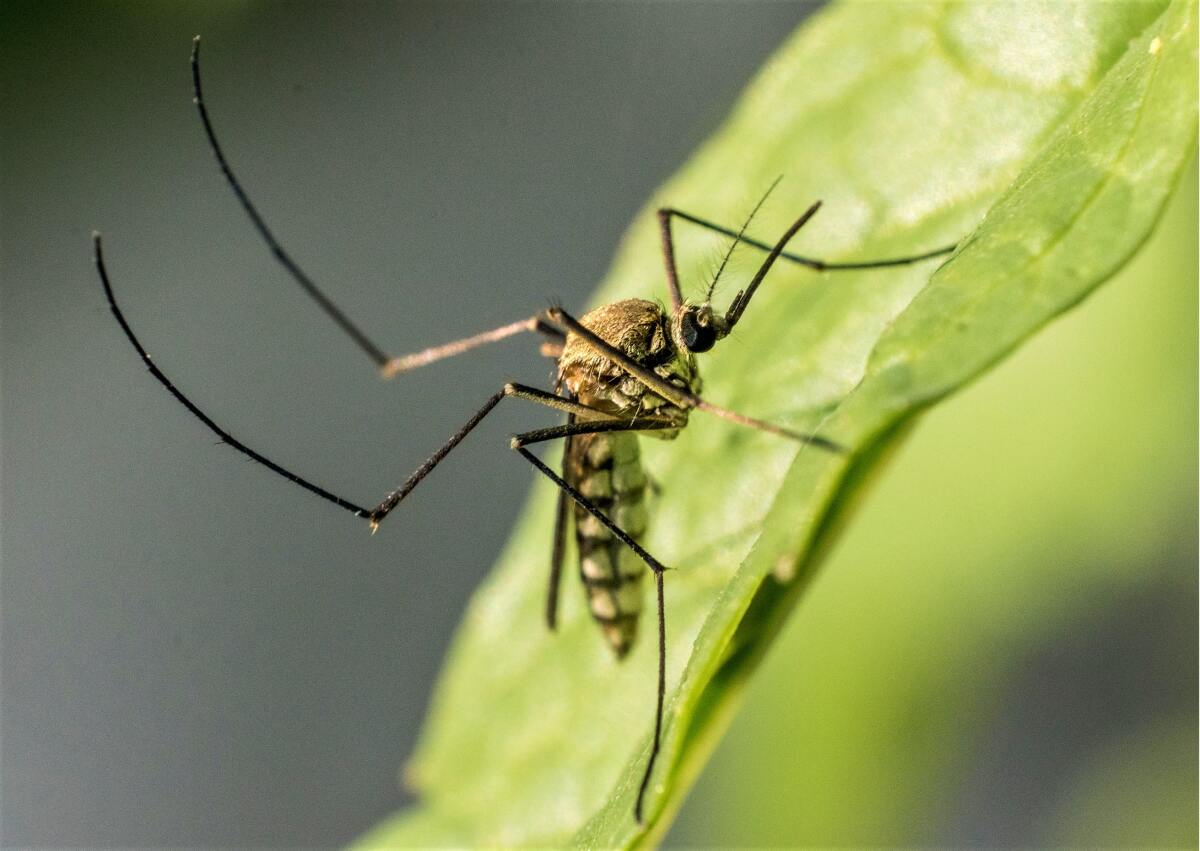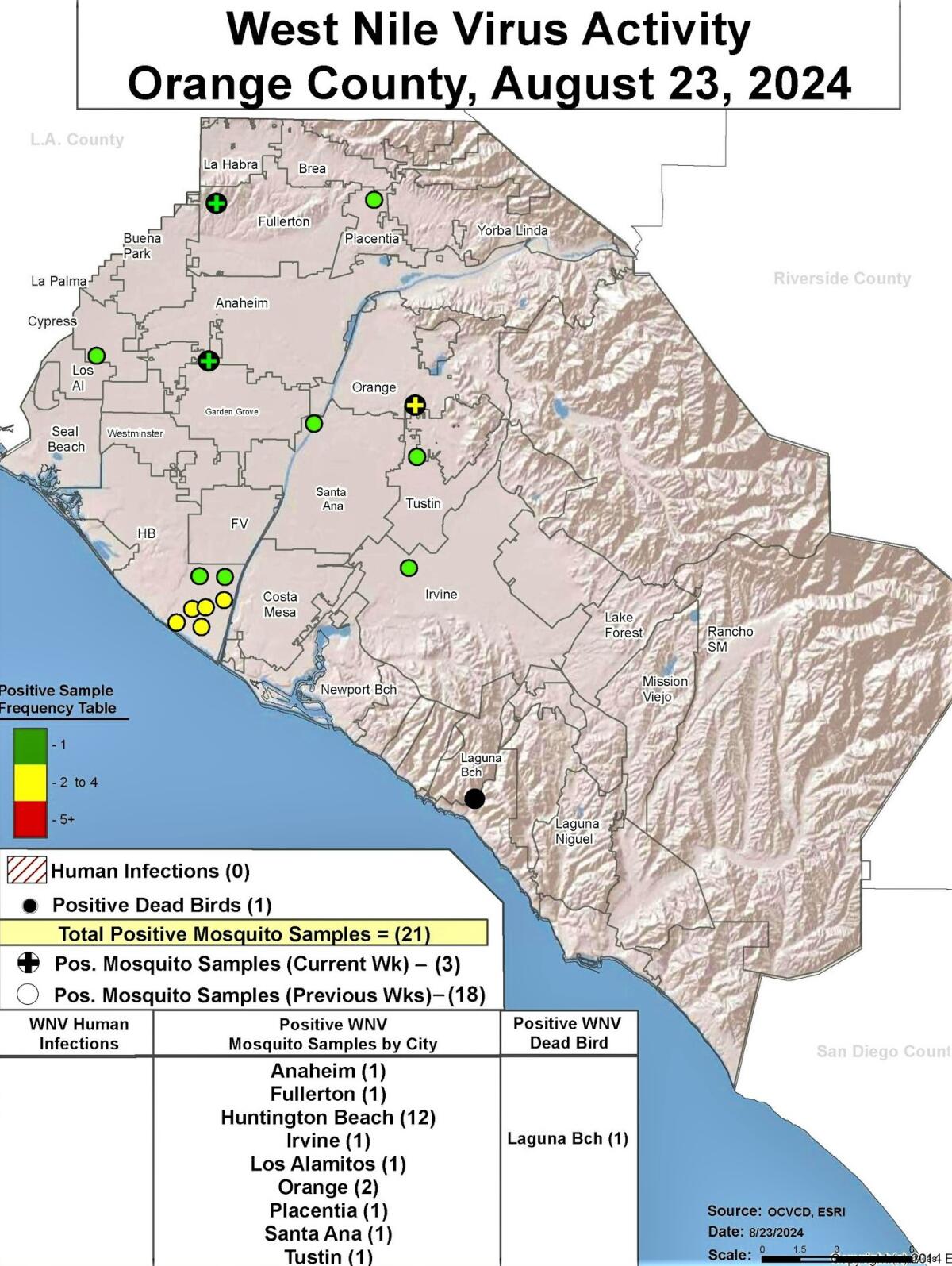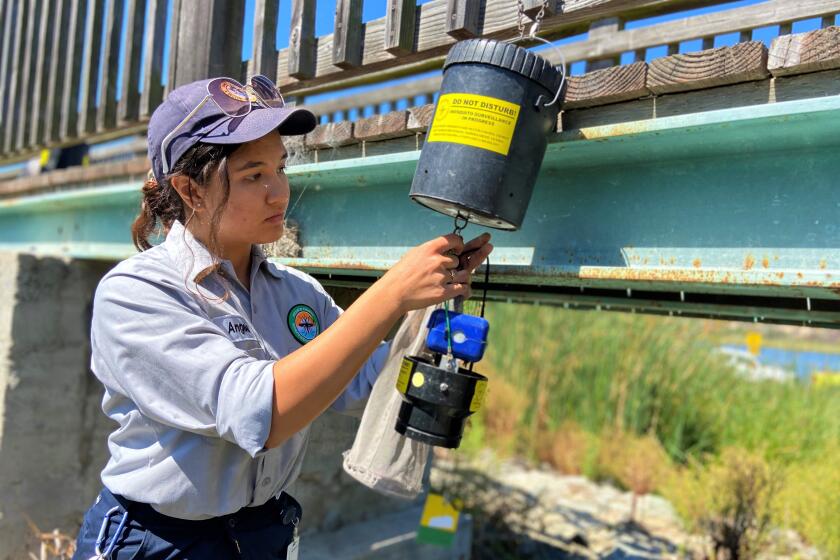Orange County reports this year’s first human case of West Nile virus in Huntington Beach

- Share via
Public health officials on Wednesday confirmed Orange County’s first human case of West Nile virus so far this year was reported in the city of Huntington Beach.
The individual — whose identity is not being released out of confidentiality — was hospitalized earlier this month with signs of infection but has since been discharged and is now recovering at home, Orange County Health Care Agency Medical Director Dr. Matthew Zahn said Friday in an email to the Daily Pilot.
West Nile virus, transmitted to humans and animals through the bite of mosquitoes, has so far been detected in one or two mosquito samples collected in Irvine, Anaheim, Orange, Fullerton, Los Alamitos, Placentia, Santa Ana and Tustin as of Aug. 23, according to the Orange County Mosquito and Vector Control District.

But in Huntington Beach, home to ample wetland areas that appeal to the cold-blooded insects when outside temperatures rise, a total of 12 mosquito samples have tested positive for the disease, the agency reports on its website.
Zahn would not comment on the affected individual’s specific activities leading up to the infection but said Friday it can be hard to trace the roots of a human infection.
“In most situations, persons who become infected have multiple potential exposure times and sources and the source of infection is not clear,” he wrote in an email.
While most humans infected with the virus do not experience symptoms, about 20% may develop fever accompanied by headaches, body aches, nausea, tiredness or a skin rash. More serious symptoms include neck stiffness, confusion, muscle weakness or paralysis.
The risk of infection increases during summer months, when mosquitoes are known to thrive.
Mosquitoes carrying the virus were collected July 3 from a residential area south of Adams Avenue, vector control officials reported.
“This is the time of year when we usually start to see cases of [West Nile virus],” Zahn warned. “The heat of summer can bring prime breeding conditions for mosquitoes and people frequently engage in outdoor activities at this time of year.”
Health and vector control officials advise residents to take precautions, such as using insect repellents, wearing long sleeves and trousers during peak mosquito hours and draining standing water outside their homes to reduce mosquito populations.
For more information and tips on preventing West Nile virus through mosquito abatement, visit ocvector.org.
All the latest on Orange County from Orange County.
Get our free TimesOC newsletter.
You may occasionally receive promotional content from the Daily Pilot.





